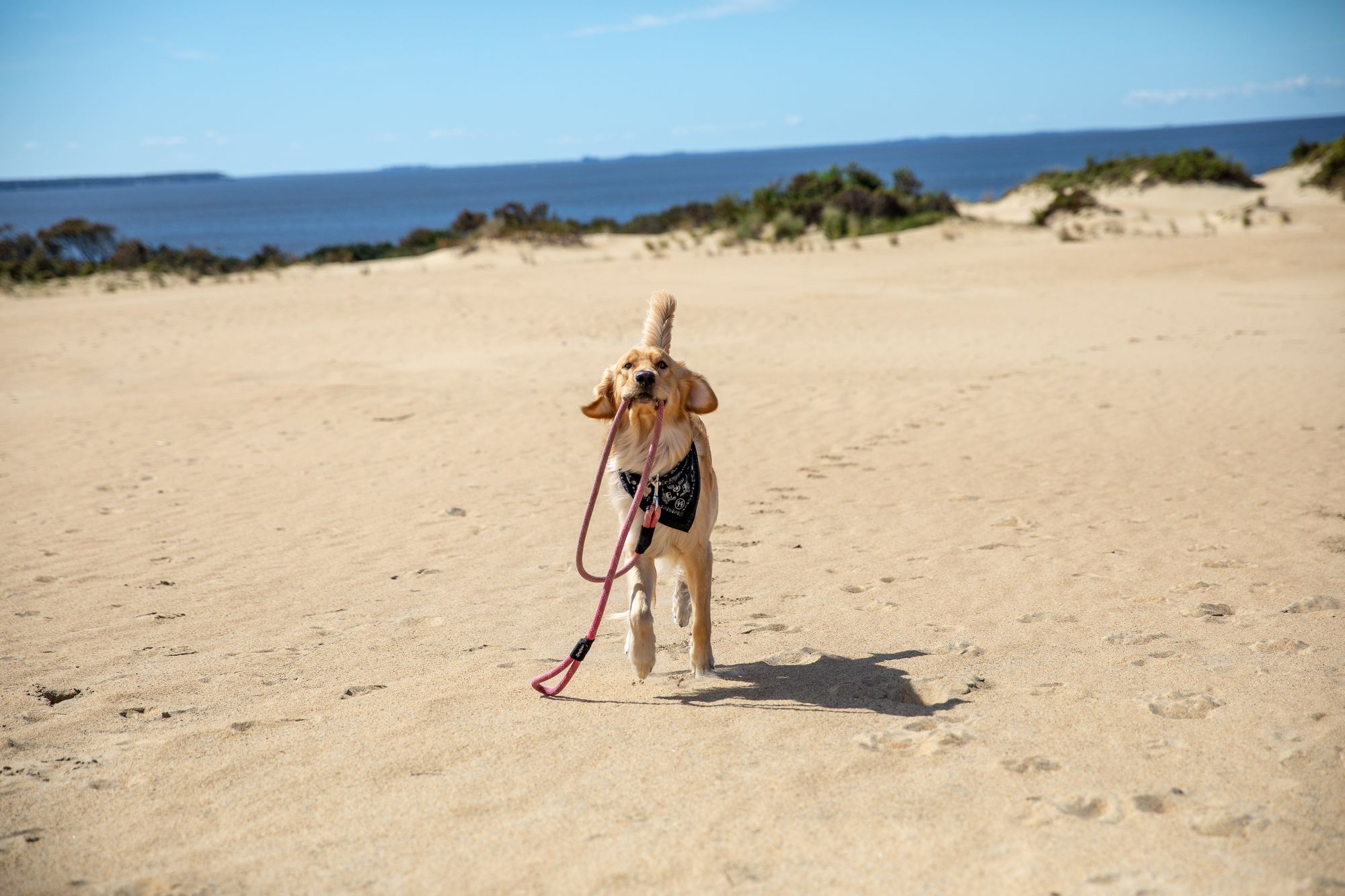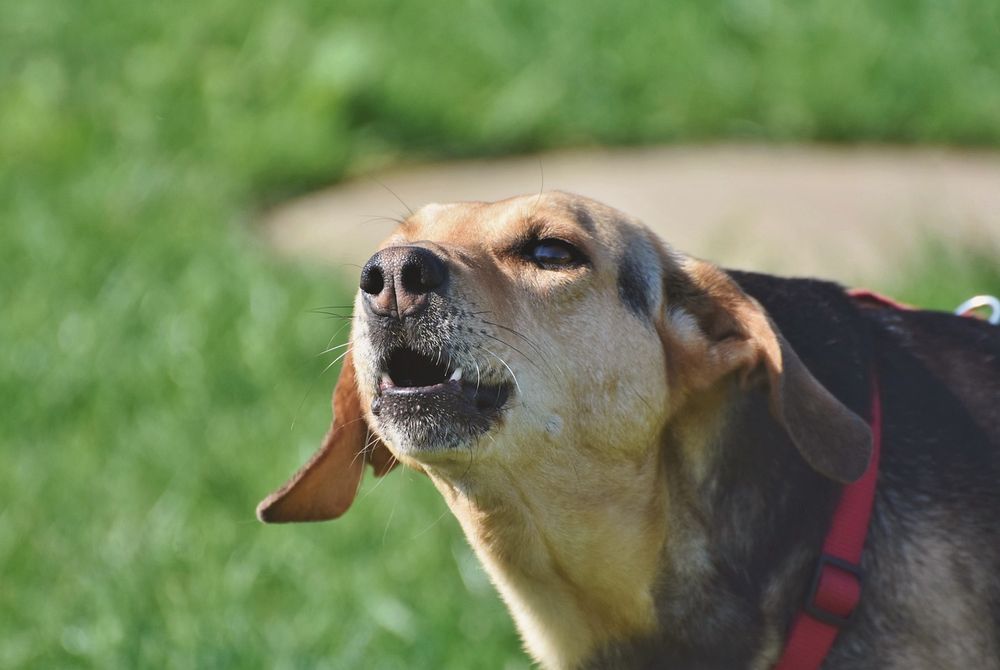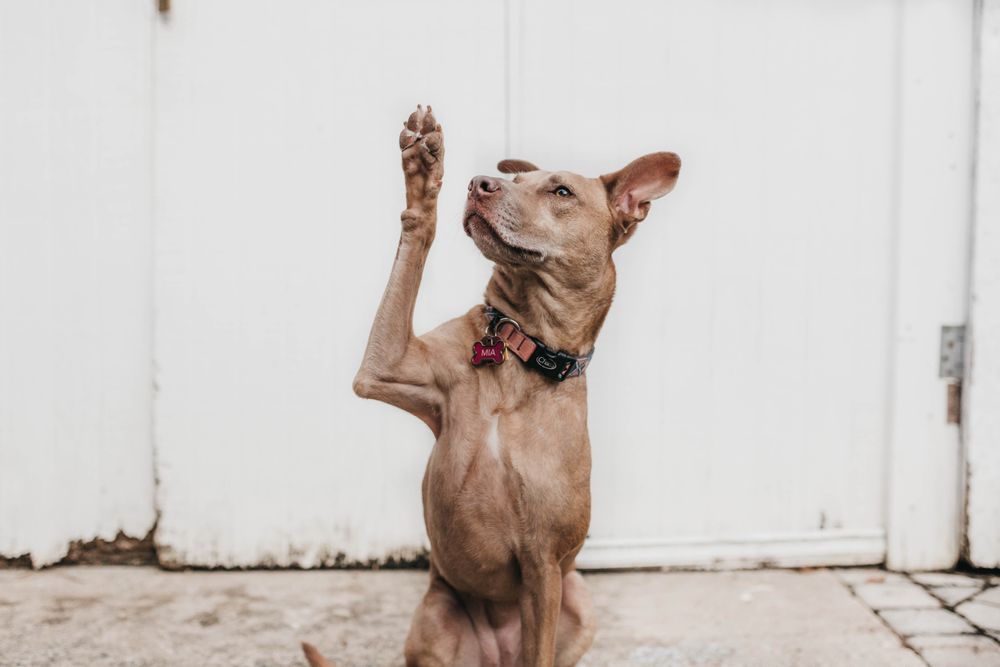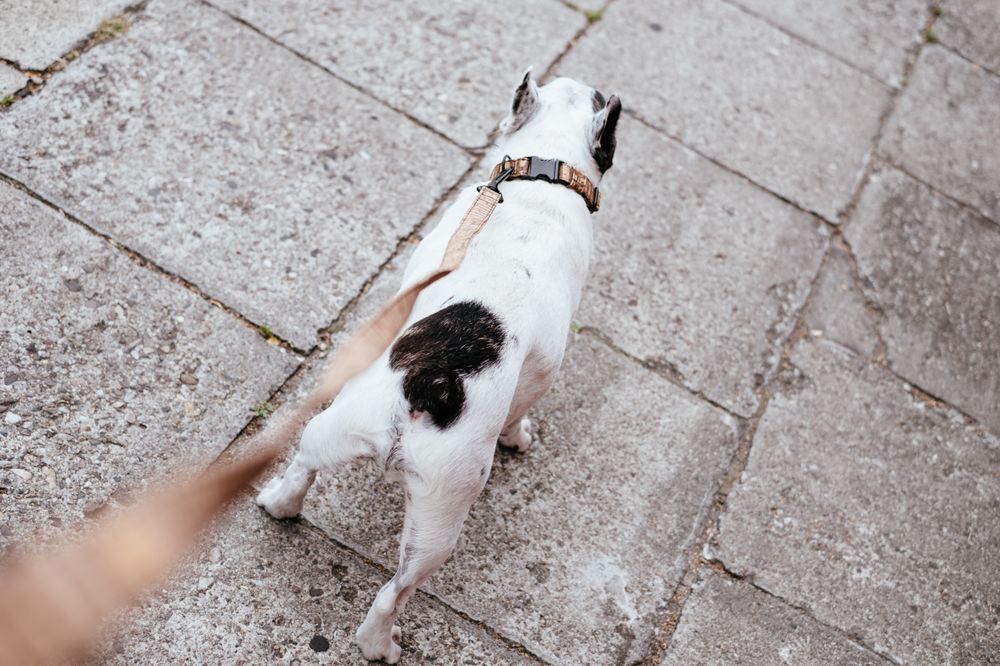Does your dog bite their leash and shake it frantically immediately upon starting your walk? This behavior can be the difference between a lovely morning stroll, and a stressful game of neighborhood tug-o-war. To help you stop your dog from biting their leash during walks, this article will explain:
- Why your dog bites their leash on walks
- Tips for getting your dog to stop biting their leash
- Frequently asked questions about dogs biting their leash
Let’s get started!
Reasons why your dog bites their leash on walks
There are a few reasons your dog might be biting their leash on walks:
- They have lots of energy and view walks as “play time.” As a result, when their leash goes on they get excited, see the leash moving back and forth, and want to play tug-o-war with you.
- They’re bored. Because of this, they’re biting their leash to try and make the walk more exciting.
- They’re displacing their excitement or stress about being outside. A “displacement behavior” is a behavior that channels an emotion in an unexpected way. For instance, instead of refusing to go on a walk, your dog may bite their leash in order to release the stress of being outside.
6 tips for getting your dog to stop biting their leash
1. Don’t pull on the leash
Don’t pull when your dog is biting their leash. Your dog could interpret your pulling as “Let’s play!” and this will only incentivize your dog to bite and pull more.
2. Minimize attention
Minimize the attention you give your dog when they’re biting their leash. This is because any attention, positive or negative, could be counterproductive and unintentionally result in your dog biting their leash more.
3. Bring lots of treats on your walk
Bring lots of treats and toss them on the ground throughout your walk. A consistent flow of treats will incentivize your dog to sniff, an action that is naturally calming for dogs, focus on the ground, and spend less time biting their leash.

4. Try bringing a toy on a walk
Sometimes, giving a dog the chance to carry a stick or a toy on a walk can make a world of difference in their on-leash behavior.
5. Walk at quiet times of the day
Walking when the streets are less crowded can help your dog feel calm and minimize their urge to bite their leash. Early morning or later in the evening are great options.
6. Walk quickly
If your pup is focused on keeping up with you, they’ll be less focused on trying to bite their leash.
Frequently asked questions about leash biting
Why is my dog attacking the leash?
There are a few reasons your dog might be biting their leash on walks: they view walks as “play time”, they’re bored, or they’re displacing their excitement or stress about being outside.
Is there anything I can put on the leash to stop them from biting it?
You can attach a lightweight piece of chain to the bottom of the leash so that it runs parallel to the leash, or slip a piece of PVC pipe over the bottom foot of the leash. Dogs generally don’t like to bite chains or hard textures, so either mechanism can deter your dog from biting their leash.
Why does my dog play tug of war with their leash?
They view walks as “play time.” As a result, when their leash goes on they get overly excited and want to play tug-o-war with you.
Why do dogs walk with their leash in their mouth?
If your dog is a puppy, they probably just like the feeling of a leash in their mouth. As it’s normal for puppies to want something in their mouth at all times. If your dog is older, they’re likely anxious about being outside and find walking with their leash in their mouth calming.




